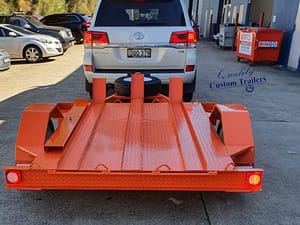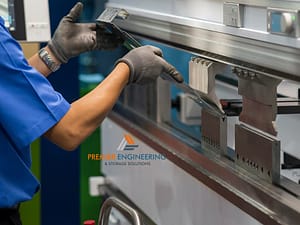Maintaining commercial baking equipment is not just a routine chore; it’s a foundational aspect of running a successful bakery. The efficiency, longevity, and reliability of your baking equipment directly impact the quality of your baked goods, the productivity of your operations, and ultimately, your bottom line. Regular maintenance ensures that equipment operates at peak performance, prevents unexpected breakdowns, and extends the life of your investments.
Establishing a Maintenance Routine
Creating a Maintenance Schedule
Developing a regular maintenance schedule is essential for keeping your bakery running smoothly. Start by listing all your equipment and consulting the manufacturer’s guidelines for maintenance recommendations. Create a calendar that includes daily, weekly, and monthly tasks, assigning specific duties to team members. Ensure that everyone understands their responsibilities and the importance of sticking to the schedule.
Checklist for Daily, Weekly, and Monthly Maintenance Tasks
- Daily:
- Clean oven interiors and exteriors to prevent buildup.
- Wipe down mixers and work surfaces.
- Check seals and gaskets on proofers and retarders for wear.
- Weekly:
- Deep clean mixers, including attachments and accessories.
- Inspect oven doors and hinges for proper function.
- Verify temperature and humidity accuracy in proofers and retarders.
- Monthly:
- Lubricate mixer gears and moving parts.
- Schedule professional inspection for ovens to check for gas leaks or electrical issues.
- Clean and calibrate thermometers and other temperature controls.
Key Maintenance Tips for Major Bakery Equipment
Oven Maintenance
Different types of ovens (deck, convection, rack) require specific maintenance routines. However, common practices include regularly checking temperature accuracy with an oven thermometer, cleaning baking stones of debris, and ensuring the fan in convection ovens is free of obstructions. For gas ovens, checking for leaks and ensuring the pilot light is functioning are crucial safety measures.
Mixer Care
Mixers are workhorses in a bakery and need regular care to function well. After each use, remove and clean all attachments, and wipe down the machine to remove dough residue. Monthly, check and lubricate gears and moving parts to prevent wear. Always ensure that the mixer is unplugged before performing any maintenance.
Proofer and Retarder Maintenance
Maintaining the right humidity and temperature is vital for effective proofing and retarding. Daily, ensure that water pans for humidity are clean and filled. Weekly, check door seals to maintain the correct environment inside the unit. Monthly, inspect temperature and humidity sensors to ensure they provide accurate readings, adjusting settings as necessary.
Troubleshooting Common Equipment Issues
Identifying Common Problems
Commercial baking equipment, like any mechanical system, is prone to a range of issues that can disrupt bakery operations. Recognizing the early warning signs of equipment failure is crucial for timely intervention. Common problems include:
- Ovens not reaching the desired temperature: Indicative of thermostat issues, heating element failure, or gas supply problems.
- Inconsistent baking results: May point to uneven heat distribution, often caused by fan malfunctions in convection ovens.
- Mixers operating loudly or shaking: Signaling potential gear wear or misalignment.
- Proofers and retarders not maintaining humidity or temperature: Suggesting sensor malfunctions or seal leaks.
Basic Troubleshooting Steps
Before reaching out for professional help, some basic troubleshooting steps can be taken:
- Check power sources: Ensure the equipment is properly plugged in and receiving power.
- Inspect for visible damage: Look for wear, tear, or damage to components that can be easily replaced.
- Clean thoroughly: Sometimes, accumulated debris can interfere with proper operation.
- Reset or recalibrate: Some issues can be resolved by resetting the machine or recalibrating temperature and humidity controls.
Professional Servicing and Repairs
When to Call a Professional
Certain situations necessitate professional intervention:
- Persistent issues: If a problem continues despite basic troubleshooting, it’s time to call in the experts.
- Complex problems: Issues involving electrical components, gas connections, or internal mechanics are best handled by professionals.
- Regular maintenance: Scheduled professional servicing ensures that potential problems are caught and addressed early.
Selecting a Reliable Service Provider
Choosing the right service provider is critical for ensuring that your equipment is properly cared for. Consider the following criteria:
- Specialization: Look for technicians who specialize in commercial bakery equipment.
- Certifications and training: Prefer providers with certified technicians who have undergone specific training for your type of equipment.
- Reputation and reviews: Check online reviews and ask for references to gauge the reliability and quality of the service provider.
- Response time and availability: Choose providers who offer timely response times and emergency services to minimize downtime.
Enhancing Equipment Longevity and Efficiency
Upgrade and Replacement Considerations
In the lifecycle of commercial baking equipment, there comes a time when upgrading or replacing certain pieces becomes necessary for enhancing performance, efficiency, and even cost savings. Key indicators that it’s time to consider an upgrade or replacement include:
- Frequent breakdowns that lead to increased repair costs and operational downtime.
- Advancements in technology that offer more energy-efficient, faster, or higher-capacity models.
- Changes in production needs, such as increased volume or the need to produce different types of baked goods.
- Energy consumption has become significantly high, indicating that the equipment is no longer operating efficiently.
When making these decisions, evaluate the long-term benefits of the investment, including potential savings on energy costs, improved product quality, and the ability to meet increased demand.
The Impact of Maintenance on Energy Consumption
Regular maintenance plays a crucial role in optimizing the energy efficiency of commercial baking equipment. Well-maintained equipment operates more efficiently, using less energy to achieve the desired results. Actions such as calibrating ovens, cleaning and lubricating mixer components, and ensuring seals are intact can substantially reduce energy consumption. This not only lowers operational costs but also contributes to environmental sustainability by reducing the bakery’s carbon footprint.
Conclusion
The foundation of producing high-quality baked goods lies not just in the skill of the baker but also in the reliability and efficiency of the baking equipment used. A commitment to regular maintenance and timely upgrades or replacements is essential for ensuring the quality of products and the longevity of bakery operations. By investing time and resources into maintaining equipment, bakeries can achieve consistent results, reduce the risk of unexpected failures, and manage operational costs more effectively. Ultimately, such a commitment underscores the bakery’s dedication to quality, sustainability, and customer satisfaction, pillars upon which a successful baking business is built.










